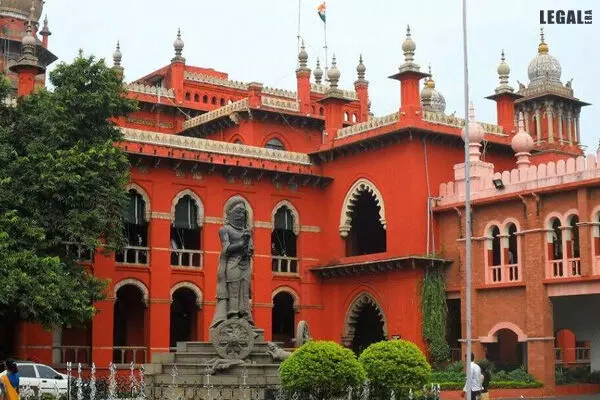- Home
- News
- Articles+
- Aerospace
- Agriculture
- Alternate Dispute Resolution
- Banking and Finance
- Bankruptcy
- Book Review
- Bribery & Corruption
- Commercial Litigation
- Competition Law
- Conference Reports
- Consumer Products
- Contract
- Corporate Governance
- Corporate Law
- Covid-19
- Cryptocurrency
- Cybersecurity
- Data Protection
- Defence
- Digital Economy
- E-commerce
- Employment Law
- Energy and Natural Resources
- Entertainment and Sports Law
- Environmental Law
- FDI
- Food and Beverage
- Health Care
- IBC Diaries
- Insurance Law
- Intellectual Property
- International Law
- Know the Law
- Labour Laws
- Litigation
- Litigation Funding
- Manufacturing
- Mergers & Acquisitions
- NFTs
- Privacy
- Private Equity
- Project Finance
- Real Estate
- Risk and Compliance
- Technology Media and Telecom
- Tributes
- Zoom In
- Take On Board
- In Focus
- Law & Policy and Regulation
- IP & Tech Era
- Viewpoint
- Arbitration & Mediation
- Tax
- Student Corner
- AI
- ESG
- Gaming
- Inclusion & Diversity
- Law Firms
- In-House
- Rankings
- E-Magazine
- Legal Era TV
- Events
- News
- Articles
- Aerospace
- Agriculture
- Alternate Dispute Resolution
- Banking and Finance
- Bankruptcy
- Book Review
- Bribery & Corruption
- Commercial Litigation
- Competition Law
- Conference Reports
- Consumer Products
- Contract
- Corporate Governance
- Corporate Law
- Covid-19
- Cryptocurrency
- Cybersecurity
- Data Protection
- Defence
- Digital Economy
- E-commerce
- Employment Law
- Energy and Natural Resources
- Entertainment and Sports Law
- Environmental Law
- FDI
- Food and Beverage
- Health Care
- IBC Diaries
- Insurance Law
- Intellectual Property
- International Law
- Know the Law
- Labour Laws
- Litigation
- Litigation Funding
- Manufacturing
- Mergers & Acquisitions
- NFTs
- Privacy
- Private Equity
- Project Finance
- Real Estate
- Risk and Compliance
- Technology Media and Telecom
- Tributes
- Zoom In
- Take On Board
- In Focus
- Law & Policy and Regulation
- IP & Tech Era
- Viewpoint
- Arbitration & Mediation
- Tax
- Student Corner
- AI
- ESG
- Gaming
- Inclusion & Diversity
- Law Firms
- In-House
- Rankings
- E-Magazine
- Legal Era TV
- Events
Income and property acquisition link must have proof under SAFEM Act: Madras High Court

Income and property acquisition link must have proof under SAFEM Act: Madras High Court
The bench renders invocation of the power of forfeiture illegal
The Madras High Court has held that the nexus between the income of the detenue and the acquisition of property must be established under the Smugglers and Foreign Exchange Manipulators (Forfeiture of Property) Act, 1976.
The competent authority had challenged the order under the SAFEM Act setting aside the proceedings of the appellant forfeiting the properties of the first respondent. It claimed they were acquired out of the proceeds of the illegal activities of her father K.T.M.S. Mohammed against whom the proceedings were initiated under the Conservation of Foreign Exchange and Prevention of Smuggling Activities Act, 1974.
The appellant was issued a notice under SAFEM Act and held liable for forfeiture since she was unable to provide details of the sources of acquisition of the funds. The authority passed an order forfeiting the properties belonging to her father.
While allowing the appeal in respect of the movable properties, the appellate tribunal, dismissed the appeal on the immovable properties.
On an appeal before the first bench of the high court in WP No.2825 of 1978, the matter was disposed of on 01 February 1995 and remitted to the appellate authority with a direction to decide it legally.
The tribunal concluded that since the deponents of the affidavits could not be cross-examined, the same could not be taken at their face value and dismissed the appeal.
It was observed that the court did not establish the link between the alleged illegal earnings of the detenue and the acquisition of properties by the petitioner.
The high court observed that to invoke the provisions of Sections 6 and 7, the competent authority is required to establish the jurisdictional fact and must record reasons that the property was acquired using illegal earnings. The nexus between the two should have been disclosed.
The bench comprising Justice R Subramanian and Justice K Kumaresh Babu observed that the link was absent. It rendered invocation of the power of forfeiture illegal and abstained from interfering with the conclusion of the writ court in quashing the proceedings.
It said that the writ court's conclusion regarding the burden of proof was not in tune with the intendment of the enactment.



